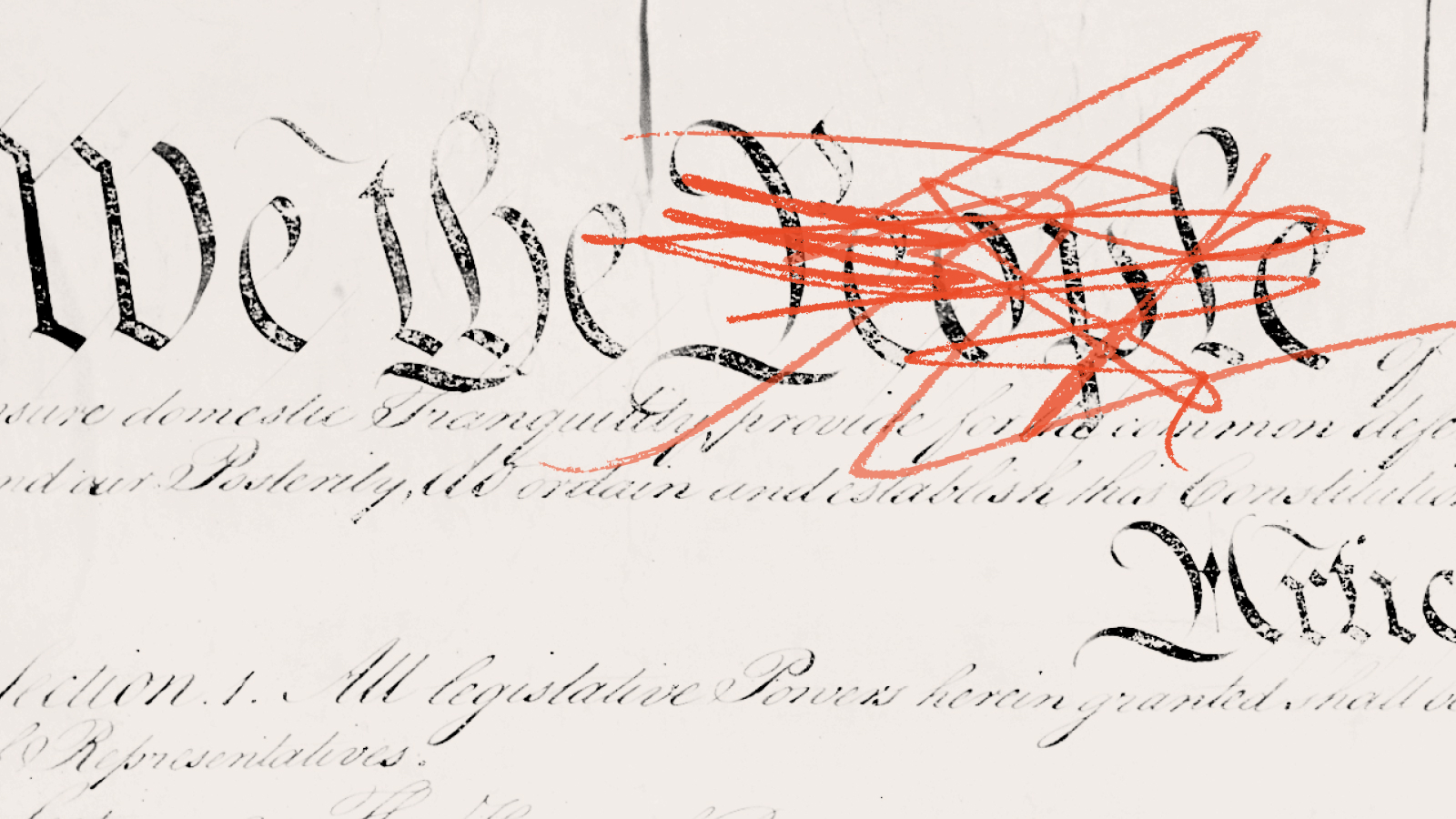“Cluster thinking” is damaging our politics. Here are 3 ways to beat it.

- The British philosopher Julian Baggini argues that “cluster thinking” — defined as wrongly assuming that certain beliefs necessarily go together — fuels partisanship and tribalism.
- In this week’s Mini Philosophy interview, Baggini argues that this kind of cluster thinking is damaging our conversations around climate policies.
- To beat this bias, we ought to judge beliefs on their individual merits, avoid false dichotomies, and keep open-minded when encountering others’ values.
In 2023, the British philosopher Julian Baggini introduced the idea of “cluster thinking,” which is where we “assume that certain beliefs form a natural set when, in reality, they are independent of each other.”
For example, test these out: Kadie is a gay rights activist. She attends rallies, organizes speeches, and petitions lawmakers about promoting gay rights. Do you think Kadie is left-wing or right-wing in her politics?
Cole doesn’t believe in having sex before marriage. There have been opportunities. He’s been tested. But Cole is resolute in his pre-marital celibacy. Do you think Cole is religious or not?
Mark is angry about levels of immigration. He thinks the government should bolster the borders and set tougher criteria for legal migration as well. Which way do you think Mark voted in the last election?
In each case, it’s tempting to resort to “cluster thinking.” We might assume Kadie is a socialist, Cole is an evangelical Christian, and Mark voted for the hard right. Of course, this is a fallacy. It’s lazy reasoning, even if mental shortcuts like these sometimes align with reality. It’s perfectly possible to be a gay rights activist without being left-wing. It’s possible to not have sex before marriage and be an atheist.
For Baggini, the problem with cluster thinking is that it promotes partisanship. It “tends to create false dichotomies, in which a choice is presented as binary.” So, you are either one of us or you are one of them. And thinking in this way forces every political issue into a battle of the tribes. It turns debate into an argument, and defending an idea means defending a cluster of ideas.
We need to step beyond cluster thinking.
The environmental cluster
I recently spoke with Baggini about his new book, How the World Eats: A Global Food Philosophy. He argued that when we talk about the environment, it’s easy to turn to cluster thinking.
“The whole fight against climate change was burdened by cluster thinking for years,” he said. “It was considered to be a kind of a left-wing or ‘progressive’ cause. And so, conservatives sort of dismissed it. But when people apply cluster thinking, they don’t bother engaging with things that they don’t think are part of their own set. They dismiss things that they think are part of the wrong set. And that’s a problem for everyone.”
Baggini’s point is that when we are talking to someone about an environmental issue — for example, reducing greenhouse gases — we therefore assume they will also carry certain other beliefs as well. We might assume they are anti-capitalist, vegan, and believe in the Gaia hypothesis. Of course, that might be true. Some or even many people might subscribe to all the beliefs in that real or perceived cluster, but it’s not necessarily a cluster.
Assuming it’s a cluster is what forces the environmental debate into tribalism. It means we cannot have a mature and valuable conversation about climate issues without it becoming as simplistically binary as watching a football match.
The cooling world
The solution to cluster thinking is to look at beliefs on their own merits — as discrete positions that deserve their own examination. And when you look at climate issues, there are many reasons why someone might be arguing for a reduction in greenhouse gases. For Baggini, it’s not a matter of left-wing or right-wing, this tribe or that tribe. It’s simply “self-interest, if not for you as a person, but for your family and future generations.” To illustrate this point, Baggini presents a thought experiment about a cooling world:
“Let’s put it this way. Imagine a possible world in which the earth was naturally cooling quite quickly. Well, it would be a very, very good idea to release more greenhouse gases into the atmosphere to stop us from cooling too much, right? In such a world, all sorts of things that we currently think to be wrong could suddenly be right. We ought to be extracting fossil fuels and burning them as much as possible. And I think the problem is that people tend to kind of like forget that a lot of these things are right and wrong only because of the consequences they have. They’re not right or wrong in themselves.”
“What happens is that they develop a kind of moral quality, as though there’s something intrinsically wrong with them. There’s nothing intrinsically wrong with burning fossil fuels. It becomes morally problematic simply because it so happens, we live in a world where these things have bad consequences.”
How to beat cluster thinking
So, how do we escape the trap? If cluster thinking turns our minds tribal, how can we untangle our assumptions? Here are three ways to beat the bias:
Judge beliefs on their individual merits
Baggini’s cooling world is a powerful example: Burning fossil fuels isn’t intrinsically immoral. It’s just that, in this world, it happens to have disastrous consequences. The lesson is to assess beliefs — and policy decisions — not as moral badges but as pragmatic responses to circumstances. We should evaluate ideas based on evidence, reasoning, and context — not based on the company those ideas keep.
Be suspicious of false dichotomies
Part of growing up is recognizing that most of the world is not so easily categorized. If you ask any academic or expert, “Do you think this is X or Y?” you can bet your recycling bin that they’ll say something like, “It’s probably a bit of both.” Because very few issues are truly binary. You can be pro-environment and pro-market. You can be anti-war and not anti-West. You can be conservative and support gay rights. If someone presents an issue as a fork in the road, ask yourself: Are these really the only two options — or am I, actually, being asked to identify with a side?
Pause your assumptions
When we hear stories of people like Kadie, Cole, and Mark, it’s easy to fill in the rest of their character based on a single trait. That’s cluster thinking. But the smarter move is to pause. It’s simplistic to assume beliefs must come together. It’s insulting to think the depth and complexity of someone’s beliefs can be represented by one view on one topic. If someone tells you they’re worried about immigration, don’t assume you know how they voted. If someone is celibate, don’t guess their theology. Instead, stay curious. Ask questions. Let people surprise you.
In short, beating cluster thinking means swapping assumption for attention. It means listening harder, thinking slower, and refusing to let beliefs travel in gangs. And, when we do so, we might be able to approach politics more rationally and constructively than it often seems today.





